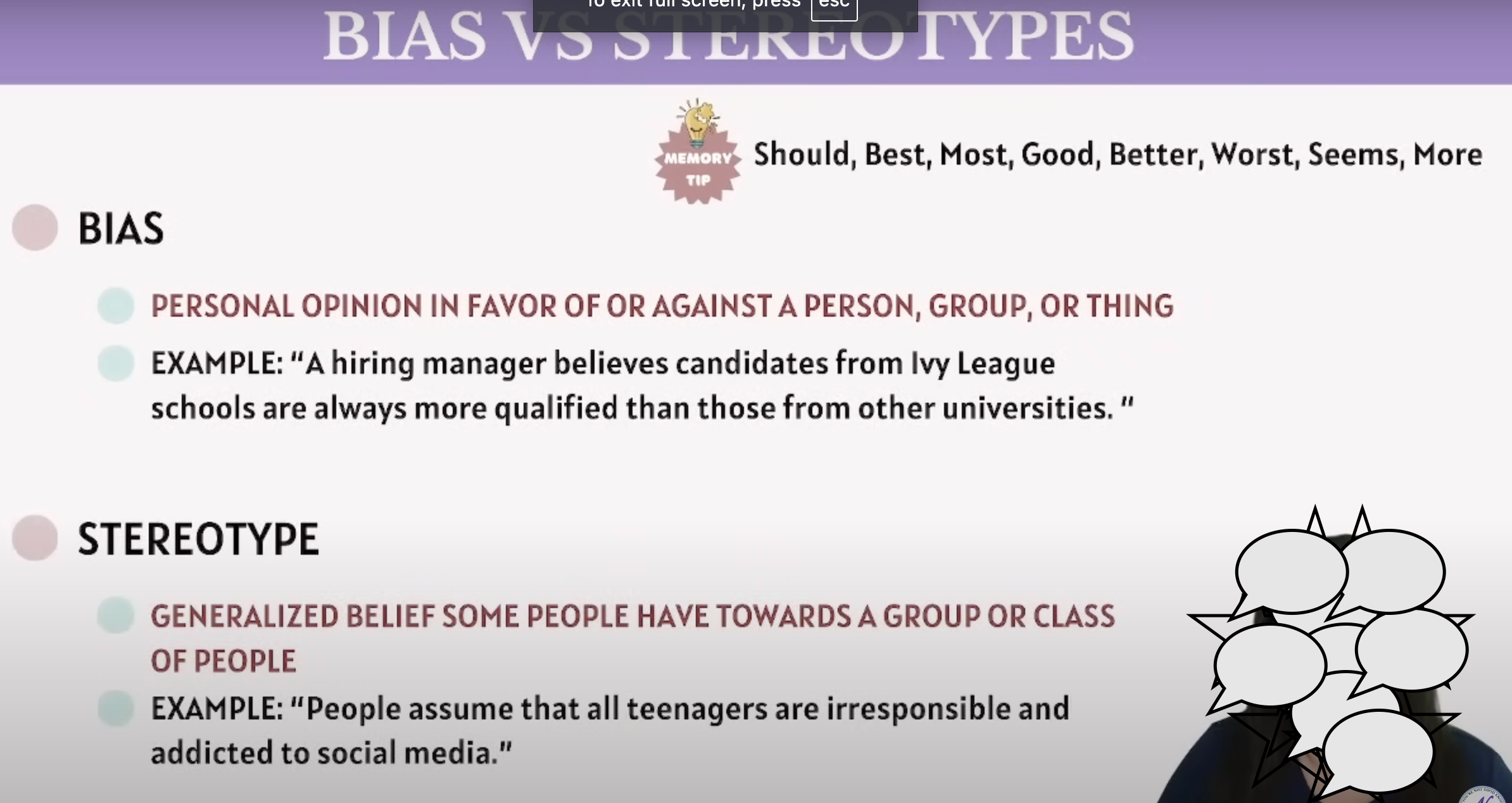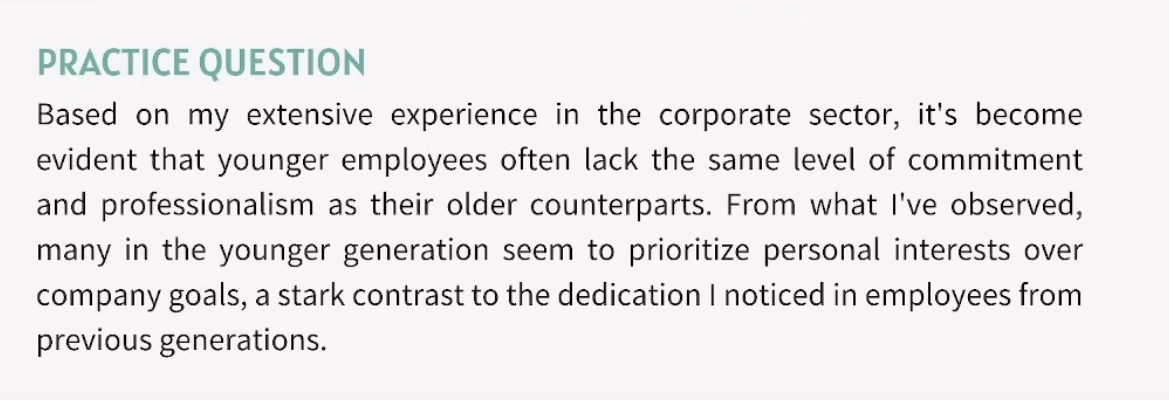TEAS V7 Reading Bias vs. Stereotypes and more
1/20
There's no tags or description
Looks like no tags are added yet.
Name | Mastery | Learn | Test | Matching | Spaced |
|---|
No study sessions yet.
21 Terms

What are the definition and example for bias?
Personal opinion in favor of or against a person, group, or thing
Example: “A hiring manager believes candidates from Ivy League schools are always more qualified than those from other universities.”
What is the definition and example for stereotype?
Generalized belief some people have towards a group or class of people
Example: “People assume that all teenagers are irresponsible and addicted to social media
“I prefer hiring younger employees because they’re more innovative.” What type of example is this?
Bias
Young people are always on their phones and can’t focus for long periods. What type of example is this?
Stereotype
“In my opinion, older teachers are better because they have more experience.” What type of example is this?
Bias
“Older workers are not good with technology.” What type of example is this?
Stereotype
“I always choose younger doctors; I believe they’re more up-to-date with medical advancements.” What type of example is this?
Bias
“Young people are reckless and don’t consider the consequences of their actions.” What type of example is this?
Stereotype

What does the author’s statement in the article suggest?
a.) It is a factual representation of generational differences in the workplace
b.) It reflects a personal opinion based on the author’s experiences
c.) It is an unbiased observation about changing workplace cultures
d.) It is a statistically backed analysis of employee behavior across generations
What is the definition and example of a fact?
Information that can be verified is known as facts, things that are backed up by data.
Example: “The human heart typically beats between 60-100 times per minute at rest”
What is the definition and example of an opinion?
Subjective and based on one-person’s view, emotions, or interpretations
Example: Jogging in the morning is the best form of exercise to maintain a healthy heart.
What is a good memory tip for fact?
Passage contains numbers, it’s always a fact
What is a good memory tip for opinion?
Should, best, most, good, better, worst, seems, more
“It’s 70 degrees outside.” What type of example is this?
Fact, it is verifiable
“It’s too hot outside.” What type of example is this?
Opinion
“The Amazon rainforest is the largest rainforest in the world, covering over 5.5 million square kilometers.” What type of example is this?
Fact
“The Amazon rainforest is the most impressive rainforest in the world.” What type of example is this?
Opinion
“As of 2023, the most powerful supercomputer can perform over a quintillion calculations per second. What type of example is this?
Fact
“Supercomputers are more important for scientific advancement than traditional research methods.” What type of example is this?
Opinion

Which of the following best describes this statement?
a.) An opinion about the Mediterranean diet
b.) A fact based on a published medical study
c.) A hypothesis about dietary impacts on heart disease
d.) An anecdotal observation about dietary preferences

What type of statement is primarily presented in the passage?
a.) A fact supported by universal scientific consensus
b.) A general observation based on common dietary patterns
c.) An opinion held by some healthcare professionals
d.) A proven guideline for chronic disease prevention